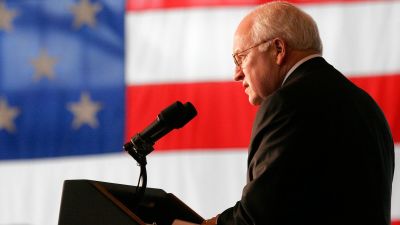When MEA, Finance Ministry fight, war gets dirty
NEW DELHI, MAY 14: The North-South divide on Raisina Hill is now in the open. For over a year, the Ministry of External Affairs (MEA) and ...

NEW DELHI, MAY 14: The North-South divide on Raisina Hill is now in the open. For over a year, the Ministry of External Affairs (MEA) and Ministry of Finance have been engaged in a war of words.
The battle began with the MEA’s alleged dilly-dallying on clearance for Finance Ministry officials — first to move a resolution at a UN meeting on narcotics in Lucknow and later to attend a UN conference in Vienna. The conferences were long over but the fight continues.
Sources, however, attribute this to the rivalry between the elite foreign service and the other Central services and the “austerity” memos issued by the Finance Ministry.
On March 30, 1999, Narcotics Commissioner R. Bhattacharji — who was denied clearance for moving a resolution at a UN sub-session on narcotics in Lucknow — shot off an angry letter to the Joint Secretary of the UN division of the ministry. The letter said, “The Joint Secretary (UN), Ministry of External Affairs, has only idle fears fostered by complete ignorance of the subject. We received no help at all from the Permanent Mission of India, yet the Lucknow accord was passed by the entire plenary. This is a lesson to the stoic UNwallahs in our Ministry of External Affairs that work in international forii (sic) can be done without them.”
The Joint Secretary, A. Gopinathan, complained to the Foreign Secretary. The then Foreign Secretary, K. Raghunath, wrote to the finance secretary and the cabinet secretary, protesting against the “offensive and intemperate language” used in the letter. He urged them to intervene in the matter.
On October 30, 1999, Cabinet Secretary Prabhat Kumar wrote to Raghunath, that the officer has been warned in writing. “In the instant case, both sides did not observe normal courtesies… you may therefore like to take similar steps and suitably advise your officers to be prompt in their dealings with other government departments while disposing of their requests, this will generate better goodwill amongst all concerned,” Kumar advised.
At the same time, the Cabinet Secretary wanted a background note from the Finance Ministry on the row. The note that Finance Secretary Piyush Mankad sent said that in January 1999, the Narcotics Commissioner (NC) wrote to the JS (UN) to clear the proposal as a matter of urgent importance and the department wanted to introduce the resolution at the 34th session of the UN sub-commission on narcotics held in Lucknow from February 1 to 5.
According to the note, the Narcotics Commissioner rang up JS (UN) and Director (UN) more than a dozen times in the second half of January and the first week of February 1999, but there was no response.
Finally, the Narcotics Commissioner left a message with the PA to the Director (UN) about his intention to move the resolution in Lucknow session. “It was then the NC got a fax from MEA at Lucknow at the very last minute asking him not to move the resolution but support it if some other country moved it.”
The matter was resolved after minister of state Vasundhara Raje Scindia intervened and the MEA gave the clearance and the resolution was passed.
The note states that another resolution that the Revenue Department wanted to move related to precursor control was objected to by the JS(UN) who said that India’s permanent mission in Vienna was not taken into confidence. The note says that in the light of these, the Narcotics Commissioner sent a letter to MEA on March 30 that made some “uncharitable remarks against the MEA.”
What compounded the problem was what North Block mandarins describe as delay tactics by the MEA in granting political clearance to a Joint Secretary of the Finance Ministry and Narcotics Commissioner for an inter-sessional meeting of the UN Commission on Narcotic Drugs at Vienna in June 1999. The Finance Ministry officials accused the MEA of holding up the political clearance required for the trip and left without getting the clearance.
Later following the intervention of Scindia, a post-facto permission was given.
The matter did not end there and continued to linger in the corridors of the ministries. The bills of the trip were not cleared by the MEA and on February 29, 2000, Dr. G.C.Srivastava, Additional Secretary in the Ministry of Finance wrote to Foreign Secretary, Lalit Mansingh to get the sanction order for payment of the bills of the trip.




- 01
- 02
- 03
- 04
- 05



























